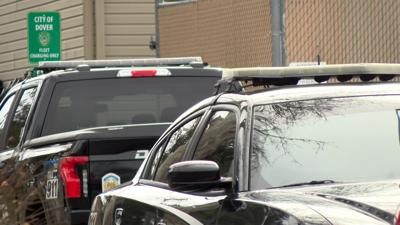DOVER, DE- A six-month effort by the Dover Police Department through the city's Quality-of-Life Initiative to address persistent community issues produced limited results, prompting Chief Thomas Johnson to call for systemic reforms beyond city limits.
The program, which ran from November 2024 to May 2025, aimed to tackle ongoing concerns such as drugs, prostitution, and public disorder while helping connect people in need to social services.
Chief Johnson said the initiative was an all-out effort to support the community.
"I'm sounding the alarm. We ran the playbook for half a year exactly the way the universe around here is constructed, and it's not working. We need change. We need a shift in ideas."
During that time, police recorded 326 service calls, contacted 480 people, filed 159 charges, and documented 392 offenses. By August, 323 cases had been adjudicated, but only 12% resulted in punishment, with the rest dismissed, highlighting what Johnson called a disconnected and ineffective system.
"There is not enough on the accountability side to make any kind of a difference. The health and human services, the social services side — that side of the equation is in too much disarray."
He noted that more than half of the people the department tried to help during this period were repeat offenders cycling through the system with little consequence.
"It almost is laughable- the amount of times you have to arrest somebody to see something happen and what that says to victims and what that says to our residents and our constituents about our ability through law enforcement to affect change — that's disappointing."
Johnson described challenges on both sides of the system, including limited accountability and delays in social services.
"Right now, there aren't enough teeth on that side to change behavior. And then on the other side of the coin, the idea of the limitations — bed space, insurance, transportation, case management, follow-up care- all of those things that lead to the solutions we're trying to get to. There's too much noise in that space."
The chief also mentioned the difficulty of addressing certain offenses, such as trespassing, which police responded to most often. Under Delaware law, trespassing is a low-level crime requiring repeated violations before significant action can be taken.
As part of the initiative, Dover Police tried to connect individuals to services, but Johnson said many refused "voluntary help," highlighting the limits of what the department can do on its own.
Dover Council member Fred Neil said the problem is not with the police but with the broader system they operate under.
"The answer is there's no answer until there are consequences. And the Department of Justice can no longer enable this to happen."
Councilwoman Donyale Hall said the lack of accountability fuels repeat offenses, especially when many crimes, such as downtown break-ins, are misdemeanors, leaving offenders largely unpunished.
"A lot of the charges that are low-hanging fruit, such as the break-ins, which are classified as misdemeanors, are being nolle prosequi. It's sending a very strong message to the perpetrators of crime here. It's saying to them that there's not going to be a consequence essentially for those actions."
Johnson said lasting progress will require reforms beyond city limits.
"The decision makers need to thoughtfully consider either additions, subtractions, or updates to existing statutes and regulations at the state level, and then that will filter down."
He called on state lawmakers and the wider community to help address the system's shortcomings, saying Dover Police are doing everything they can within their scope but are only one part of a larger puzzle.
"I'm requesting that not only the council- but also other parts of our greater Dover community- get together as a combined group of like-minded stakeholders and say to the state that the system needs assistance. We need to update the laws, update the rules, update the regulations."
Following months of efforts to address ongoing community issues, Dover leaders held the first meeting of the Mayor’s Blue Ribbon Opioid Taskforce this week to discuss using the state’s $250 million in opioid settlement funds. The committee outlined plans to establish a detox center, expand treatment options, and deploy mobile units to connect residents with services.
The task force plans to present formal recommendations to the City Council early next year as the city seeks funding from the state's opioid settlement commission.



